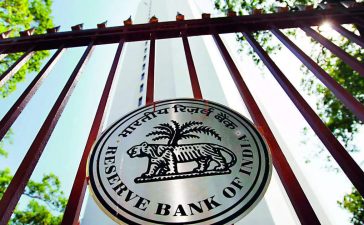Bengaluru: India is no longer the back office of the world and in fact, the world now recognises that the future of technology will be shaped as much by Indian entrepreneurs and minds as the Americans, Japanese, Koreans, or Europeans said Union minister of state for electronics and IT Rajeev Chandrasekhar at the 2023 Economic Times Startup Awards held in Bengaluru on Saturday.
“Over the last 5-6 years, if there is a defining outcome of what we have done and what is now evident, is that the confidence amongst the world’s investors, consumers, companies, and enterprises about the capabilities that this generation of entrepreneurs bring to bear is unquestionable. I think that is the big leap that has happened. And it’s not just about consumer tech, or D2C (direct to consumer), it spans the entire spectrum of what we refer to as a digital economy today,” he said.
Elaborating further, Chandrasekhar said that whether it is in the realm of artificial intelligence, Web3, semiconductors, or microelectronics each one of those subspecialities has deeply capable startups and young entrepreneurs at work in the country. “The pedigree in a sense of India’s capability has been firmly established, and in a lot of ways reset from the old narrative that we were the back office.”
Commenting on the slowdown in the inflow of investments into startups and businesses in the country, Union minister for commerce and industries Piyush Goyal said he is personally not very concerned about the ‘funding winter. “There’s always a reality check that is required after every few years and I look at this as one of those periods where our startups will come of age, we’ll see a little bit of the churn in the industry.”
Goyal added that his experience of running a business in his youth taught him that such macroeconomic headwinds have their own upsides as well. “Running a small industry at a young age, my experience is whenever you have too much cash or you are flush with cash, you tend to make mistakes, you tend to blow it off. A little tight-fisted environment in which you run your business is always going to be good for business. You’ll manage it better, you’ll control expenses, you’ll be conscious of every bang that you get for the money that you spend. Such occasional roadblocks will only help our startup ecosystem mature.”
Satyan Gajwani, vice-chairman of Times Internet, said that while the last year has demonstrated that it is not always that easy to scale up, yet at the same time, he thinks it has brought out the best of the Indian startup ecosystem. “Because leaders who were earlier pushed to grow and worry about profitability and sustainability later are now put in a position where they have to demonstrate the ability to build real, lasting, sustainable, and responsible companies. And ultimately the companies that come out of it will be stronger, weather tested, and better as a result of all of it,” he said.
“Over the last 5-6 years, if there is a defining outcome of what we have done and what is now evident, is that the confidence amongst the world’s investors, consumers, companies, and enterprises about the capabilities that this generation of entrepreneurs bring to bear is unquestionable. I think that is the big leap that has happened. And it’s not just about consumer tech, or D2C (direct to consumer), it spans the entire spectrum of what we refer to as a digital economy today,” he said.
Elaborating further, Chandrasekhar said that whether it is in the realm of artificial intelligence, Web3, semiconductors, or microelectronics each one of those subspecialities has deeply capable startups and young entrepreneurs at work in the country. “The pedigree in a sense of India’s capability has been firmly established, and in a lot of ways reset from the old narrative that we were the back office.”
Commenting on the slowdown in the inflow of investments into startups and businesses in the country, Union minister for commerce and industries Piyush Goyal said he is personally not very concerned about the ‘funding winter. “There’s always a reality check that is required after every few years and I look at this as one of those periods where our startups will come of age, we’ll see a little bit of the churn in the industry.”
Goyal added that his experience of running a business in his youth taught him that such macroeconomic headwinds have their own upsides as well. “Running a small industry at a young age, my experience is whenever you have too much cash or you are flush with cash, you tend to make mistakes, you tend to blow it off. A little tight-fisted environment in which you run your business is always going to be good for business. You’ll manage it better, you’ll control expenses, you’ll be conscious of every bang that you get for the money that you spend. Such occasional roadblocks will only help our startup ecosystem mature.”
Satyan Gajwani, vice-chairman of Times Internet, said that while the last year has demonstrated that it is not always that easy to scale up, yet at the same time, he thinks it has brought out the best of the Indian startup ecosystem. “Because leaders who were earlier pushed to grow and worry about profitability and sustainability later are now put in a position where they have to demonstrate the ability to build real, lasting, sustainable, and responsible companies. And ultimately the companies that come out of it will be stronger, weather tested, and better as a result of all of it,” he said.











